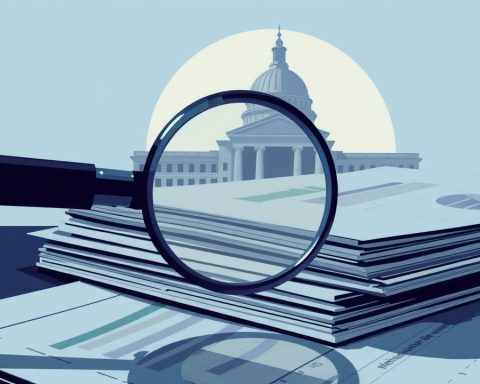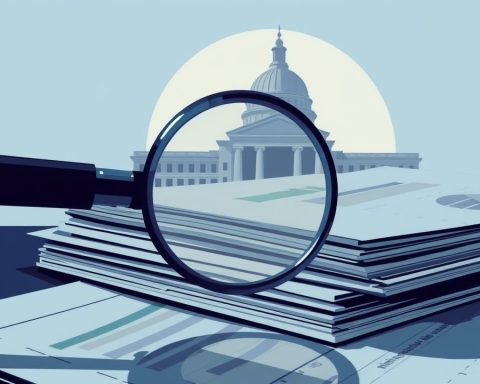Pakistan’s Cryptocurrency Landscape: A New Dawn for Digital Finance
In the northwestern region of South Asia lies Pakistan, a nation boasting a youthful demographic of approximately 241 million people. Amidst a burgeoning digital finance scene, this country is progressively laying the groundwork for a significant cryptocurrency evolution. Although the legal status of cryptocurrencies in Pakistan remains ambiguous, an increasing number of users and clearer regulatory efforts point towards its potential emergence as a central player within the South Asian cryptocurrency market.
Noteworthy developments recently unfolded as Zhao Changpeng, the CEO of Binance, joined the Pakistan Crypto Council (PCC) as a strategic advisor. This decision not only underscores Zhao’s prominent role on the international cryptocurrency stage but also highlights Pakistan’s commitment to advancing its digital economy. From this pivotal position, he will assist in shaping regulatory frameworks, enhancing infrastructure, fostering education, and advocating for cryptocurrency use, thereby collaborating closely with both governmental and private sectors to establish a compliant and inclusive cryptocurrency environment.
To better grasp the implications of this development, it is essential to examine the structure of the PCC and the current state of cryptocurrency regulations within Pakistan.
Structure and Goals of the Pakistan Crypto Council
Established by the Ministry of Finance in early 2025, the Pakistan Crypto Council was officially unveiled in March of the same year, tasked with overseeing the incorporation of blockchain technologies and digital assets within the country’s financial ecosystem. Its mandate goes beyond mere regulation; the council also seeks to cultivate a nurturing environment for digital finance and blockchain innovations while safeguarding consumers and enhancing financial security.
Leading the PCC is Finance Minister Muhammad Aurangzeb, illustrating the Pakistani government’s serious investment in the growth of its digital economy. Alongside him, Bilal bin Saqib serves as the PCC’s CEO. Saqib brings a wealth of experience as an entrepreneur from London with a notable background in social innovation. He is also the founder of Pakistan’s Web3 community, Web3 Pak, and has been recognized on the Forbes Under 30 list. His expertise includes humanitarian efforts and innovative projects, such as the Tayaba initiative to provide clean water solutions.
The immediate board includes prominent figures such as the Governor of the State Bank of Pakistan, the Chairman of the Securities and Exchange Commission, and other notable ministers, ensuring a comprehensive blend of oversight regarding regulation, financial stability, and technological advancement as it pertains to Pakistan’s cryptocurrency trajectory.
Minister Aurangzeb expressed optimism about this collaboration, stating, “We are sending a clear signal to the world that Pakistan is opening its doors to innovation. With CZ joining us, we will accelerate our vision of making Pakistan a regional powerhouse in Web3 and blockchain development.”
Challenges and Opportunities Facing Pakistan
Geographically, Pakistan is strategically positioned, bordered by the Arabian Sea and neighboring China, India, Afghanistan, and Iran, making it a significant player in South Asia and beyond. The nation experiences an energetic demographic dividend, with over 60% of its populace under the age of thirty. However, challenges abound; the economy grapples with inflation, currency depreciation, and structural issues in its educational and technological infrastructure.
Pakistan’s digital economy faces a double-edged sword regarding legal cryptocurrency frameworks. Initially, from 2018 to 2021, the State Bank of Pakistan imposed a prohibition on virtual currencies. However, a gradual shift towards exploring regulatory solutions emerged, ultimately culminating in the establishment of the PCC in early 2025 aimed at crafting a legal structure for crypto transactions and tapping into international investment opportunities.
Pakistan has been listed on the Financial Action Task Force’s “gray list”, complicating its regulatory environment. Nevertheless, the country experienced the removal from that list in 2022, coinciding with a burgeoning global interest in cryptocurrency, thus invigorating national discussions around regulatory measures and compliance expectations.
The Rise of Cryptocurrency Adoption
Despite the regulatory uncertainties, cryptocurrency adoption is thriving in Pakistan. Factors such as economic instability, currency controls, and a digitally savvy youth demographic have all contributed to an estimated 25 million cryptocurrency users. In fact, a recent Chainalysis report places Pakistan among the top ten countries globally regarding crypto adoption rates.
Particularly noteworthy is Pakistan’s position as the fifth-largest recipient of remittances remitted globally, approximating $33 billion in 2024. Traditional remittance channels often impose high fees, prompting many to seek encrypted solutions that can facilitate lower-cost cross-border transactions.
The most utilized trading platforms in the country, including Binance and Bitget, prominently support P2P transactions, as banks still restrict direct crypto dealings. Consequently, many users resort to using fintech services such as JazzCash and Easypaisa to navigate around banking limitations.
Conclusion: Navigating the Path Ahead
As Pakistan stands at a crucial crossroads regarding cryptocurrency adoption, the nascent cooperation between the PCC and prominent global figures like Zhao Changpeng presents both immense opportunities and significant challenges. If Pakistan successfully builds a compliant cryptocurrency framework, it could catalyze broader financial inclusion and potentially influence neighboring economies like Bangladesh and Iran. However, the nation must also contend with infrastructural and educational shortcomings that threaten to impede its progress. Ultimately, the ongoing evolution in Pakistan’s approach toward digital finance and cryptocurrency may unveil unprecedented potential for economic growth and innovation.

















